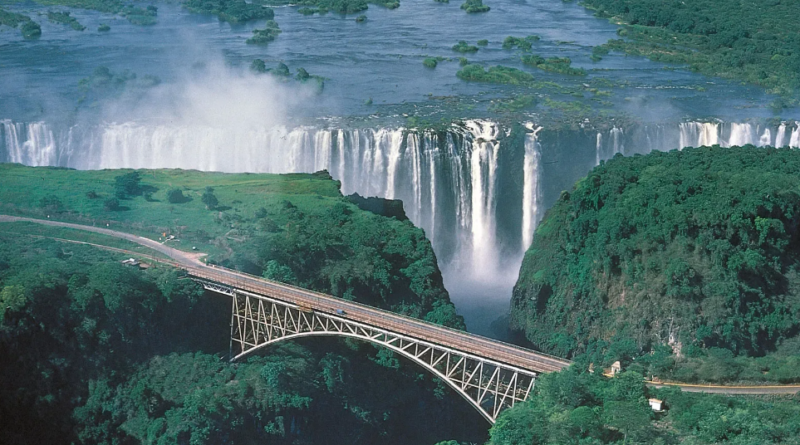South Luangwa National Park: The Jewel of Zambia
South Luangwa National Park, nestled in the eastern part of Zambia, stands as one of Africa’s premier wildlife destinations. Its pristine wilderness, diverse ecosystems, and abundant wildlife have earned it the reputation as one of the continent’s finest Zambia safari destinations. From its meandering Luangwa River to its expansive floodplains and dense woodlands, the park offers visitors a unique and unforgettable safari experience.
History and Geography
Established in 1972, South Luangwa National Park covers an area of approximately 9,050 square kilometers (3,500 square miles). It is part of the Great Rift Valley system and is characterized by its diverse landscapes, including riverine forests, grassy plains, and thick woodlands. The Luangwa River, the lifeblood of the park, winds its way through the landscape, providing water and sustenance to the rich array of flora and fauna that call the park home.
Biodiversity
South Luangwa National Park is renowned for its exceptional biodiversity. The park is home to over 60 species of mammals, including iconic African species such as elephants, buffaloes, giraffes, zebras, and wildebeests. However, it is the park’s high density of predators that truly sets it apart. South Luangwa boasts one of the highest concentrations of leopard sightings in Africa, along with healthy populations of lions, spotted hyenas, and wild dogs.
In addition to its mammalian residents, the park is a birdwatcher’s paradise, with over 400 species of birds recorded within its borders. From colorful kingfishers and majestic raptors to rare species such as the Lilian’s Lovebird and the Pel’s Fishing Owl, South Luangwa offers birding enthusiasts endless opportunities to observe and photograph a diverse array of avian life.
Safari Activities
Visitors to South Luangwa National Park can experience its wonders through a variety of safari activities. Game drives are a popular option, allowing visitors to explore the park’s diverse habitats and encounter its resident wildlife up close. Night drives offer a unique opportunity to observe nocturnal species such as leopards, hyenas, and genets as they become active under the cover of darkness.
Walking safaris are another highlight of a visit to South Luangwa. Led by experienced guides, these immersive experiences allow visitors to connect with nature on a deeper level, learning about the park’s ecosystems and tracking wildlife on foot. Walking safaris provide a unique perspective and offer the chance to observe the park’s smaller inhabitants, from insects and reptiles to birds and mammals.
For those seeking a more leisurely experience, boat safaris along the Luangwa River offer a tranquil way to explore the park’s waterways and observe its wildlife from a different vantage point. From lazy hippos basking in the sun to crocodiles lurking along the riverbanks, a boat safari provides a peaceful and intimate glimpse into the park’s aquatic world.
Accommodations
South Luangwa National Park offers a range of accommodations to suit every traveler’s preference and budget. From luxury lodges and tented camps to rustic bush camps and self-catering options, there is something for everyone. Many of the lodges and camps are situated along the banks of the Luangwa River, offering stunning views and close proximity to prime wildlife viewing areas.
For those seeking a more adventurous safari experience, bush camping offers the opportunity to immerse oneself in the sights and sounds of the African wilderness. Under the guidance of experienced guides and armed scouts, visitors can spend nights under the stars, surrounded by the sounds of the bush and the distant calls of nocturnal animals.
Conservation Efforts
South Luangwa National Park is not only a haven for wildlife but also a bastion of conservation efforts in Zambia. The park is managed by the Department of National Parks and Wildlife, which works tirelessly to protect its natural resources and ensure the long-term sustainability of its ecosystems.
Community involvement is also a key component of conservation efforts in South Luangwa. Local communities play an active role in park management and benefit directly from tourism revenue through employment opportunities and community development projects. By engaging with local stakeholders and promoting sustainable practices, South Luangwa National Park serves as a model for conservation initiatives across the continent.
Conclusion
In conclusion, South Luangwa National Park stands as a testament to the beauty and diversity of Africa’s natural landscapes. From its majestic wildlife and stunning scenery to its rich cultural heritage and commitment to conservation, the park offers visitors a truly immersive safari experience unlike any other. Whether exploring its vast wilderness on foot, by vehicle, or by boat, a visit to South Luangwa is sure to leave a lasting impression and create memories to cherish for a lifetime.
